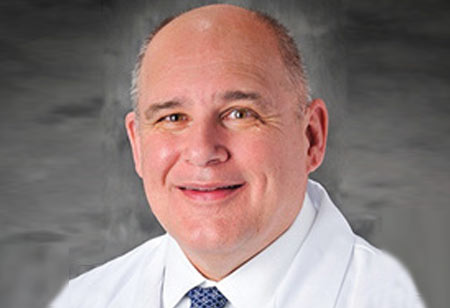Thank you for Subscribing to Healthcare Business Review Weekly Brief

EmPATH - A Path to Better ED Behavioral Healthcare
Healthcare Business Review
Emergency departments nationwide are seeing a rise in mental and behavioral health patients. As demand for these services swells, post-pandemic, community and state resources are unable to deal with the need, forcing patients and families to seek care in already overcrowded EDs. Between 2007 and 2020, the number of ED visits for mental health reasons nearly doubled. Post-pandemic, it is estimated that one in seven people arriving in the ED are there for a behavioral health issue. The average stay for these patients is three times longer than traditional medical patients. EDs have small, dedicated areas to isolate patients “at risk of harm to themselves or others,” primarily designed for safety and a relatively short stay. The little, sparsely furnished, windowless rooms restrict movement and are continuously monitored by cameras and/or individual “sitters.” This can be hours, days, or even weeks, as a safe transition is planned and arranged with limited psychiatric care and interactions while waiting.
EmPATH Emergency Psychiatric Assessment Treatment and Healing (EmPATH) is a concept that gained national attention to help patients requiring acute mental and behavioral health evaluation and stabilization. Originated by Dr. Scott Zeller in 2012, he elected not to copyright the term so others could adopt it more easily. Following the required Emergency Department medical screening examination, EmPATH observation spaces provide immediate access to psychiatric professionals to assess, stabilize, and treat within a group setting with frequent interactions with staff. The Joint Commission and the National Center for Behavioral Health recognized EmPATH in the 2022 Facility Guidelines Institute’s Guidelines for Design and Construction after Zeller was named one of the “ten most influential people in healthcare design for 2020.”
Our approach to EmPATH re-imagines mental health care in a more compassionate, less restrictive, patient-centric model focused on both the acute crisis and meaningful outcomes. To meet the needs of patients, caregivers, and our community, we critically evaluated all aspects of our existing ED psychiatric care model, not just space. As a new concept and the first of its kind program in our state, enabling projects were undertaken to connect the ED and community services more collaboratively.
The establishment of daily systemwide psychiatric interdisciplinary rounds to coordinate care management for all ED mental health patients was essential. As part of Virginia’s Right Help, Right Now initiative, we leveraged existing state programs to develop and share with other EDs individual mental health care plans using the Virginia Emergency Department Care Coordination program (EDie – Emergency Department Information Exchange) and a community-based “High Utilizer” peer support program funded by payers and the state to reduce ED visits and better connect patients to resources, including social determinates to health. EmPATH establishes a therapeutic partnership between patients and caregivers for success.
EmPATH breaks away from the established single patient, one “sitter,” constant observation model by placing the patients in a ligature-resistant space with easy access to restrooms, showers, snacks and beverages, a private area when needed, plenty of windows, an outdoor space, and frequent interactions with the healthcare team including planned programming, and activities. Patients are less controlled by their environment, actions, and reactions using trauma-informed care and peer-to-peer support.
Hundreds of Centra Caregivers from across our organization and the community have been involved in our EmPATH journey. In just 18 months, we have moved from an idea to the first patient. We look forward to sharing successes seen by other EmPATH programs, including up to an 80% reduction in admissions, a 50% reduction in overall ED length of stay for behavioral health patients, and a 60% increase in follow-up appointments following discharge. But, as Dhruv Khullar shared in his July 12, 2023, article for the New Yorker Reinventing the ED for America’s Mental-Health Crisis, “many of the model’s underlying principals seem within reach if only health systems broaden their definition of care.”
The Centra Foundation and its donors generously supported Centra EmPath.









